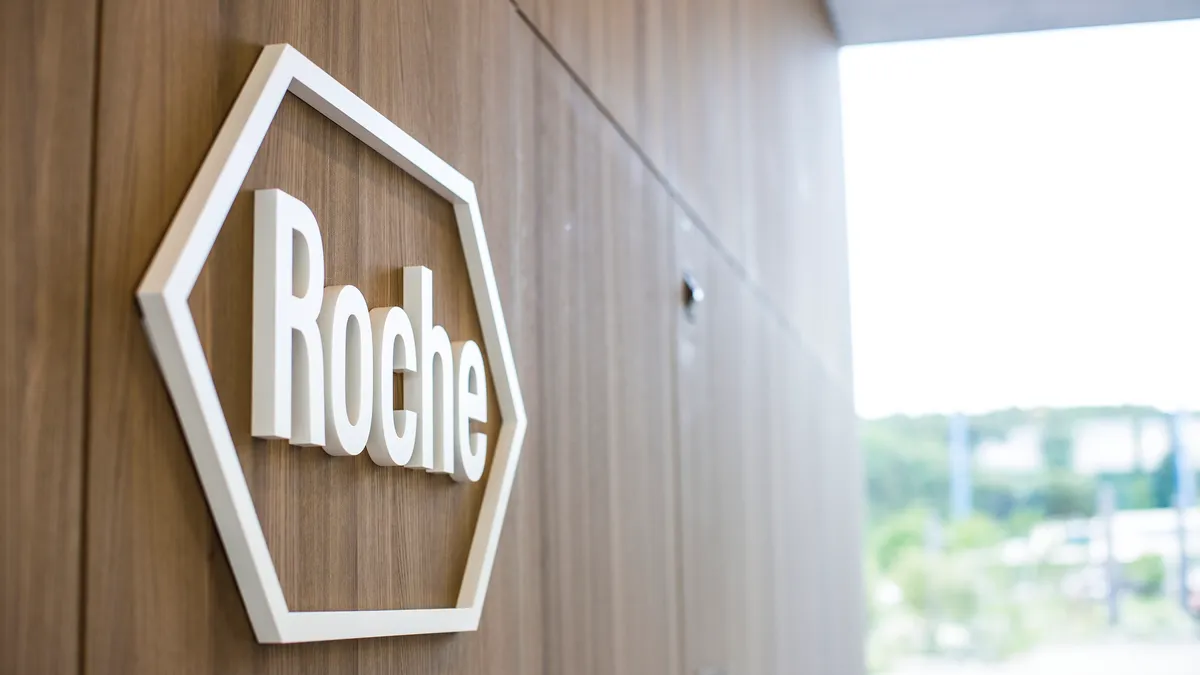Dive Brief:
-
Roche and Thermo Fisher Scientific have disclosed partnerships to use quantitative antibody tests in clinical trials of COVID-19 vaccines, as the products start to hit the market.
-
Moderna Therapeutics, which is on course to be the second company to bring a COVID-19 vaccine to the U.S. market, is using Roche's Elecsys Anti-SARS-CoV-2 S antibody test to look at the immune response to its prophylactic. Roche received emergency use authorization for the test late last month.
- Separately, Thermo Fisher said researchers at the University of Oxford, which is partnered with AstraZeneca on another COVID-19 vaccine, are using its newly CE marked antibody test to quantify immune responses in a clinical trial.
Dive Insight:
Antibody tests have played a small role in the response to the pandemic so far. However, vaccine approvals could change the dynamics, with Roche Diagnostics CEO Thomas Schinecker predicting to investors once COVID-19 prophylactics come to the market "antibody testing will become definitely a lot more relevant."
The prediction rests on the potential for antibody tests to show whether an individual has responded to a vaccine and how long that response persists. Currently, it is unclear exactly what immune state is needed to confer protection against the coronavirus but work is underway to answer that question.
Roche's collaboration with Moderna could contribute to the effort. Moderna, having previously used a qualitative version of Roche's Elecsys assay to detect antibodies, is now using its Swiss partner's quantitative test to measure levels of SARS-CoV-2 antibodies in recipients of its mRNA-1237 vaccine. Roche said the test will help "gain valuable insights into the correlation between protection from vaccination and antibody levels."
Equipped with those insights, Moderna could understand when its vaccine needs re-administering to provide continued protection. It is also possible that a clear picture of the link between the immune response and protection against COVID-19 could enable regulators to approve vaccines without the efficacy data demanded of first-generation products.
Thermo Fisher has provided a similar quantitative antibody test to the Oxford vaccine researchers. The researchers are using the OmniPATH Combi SARS-CoV-2 IgG ELISA test, which is now CE marked, in an ongoing coronavirus vaccine clinical trial. Thermo Fisher said the test will improve the ability of the researchers to accurately quantify how people respond to vaccines.
Oxford researchers developed the test with Thermo Fisher, pairing their capabilities in identifying the spike protein the virus uses to enter cells to their partner’s manufacturing and immunoassay assets. The result is a 384-well microplate and associated automation system designed to enable Oxford to process up to 50,000 tests a day.
If, as Roche expects, vaccine approvals raise demand for antibody tests, it and Thermo Fisher will face competition from a small number of other companies with quantitative kits. Siemens received EUA for a quantitative test over the summer and Kantaro Biosciences got FDA's backing for its kit one day before Roche. Thermo Fisher has yet to get an EUA for its quantitative test.










